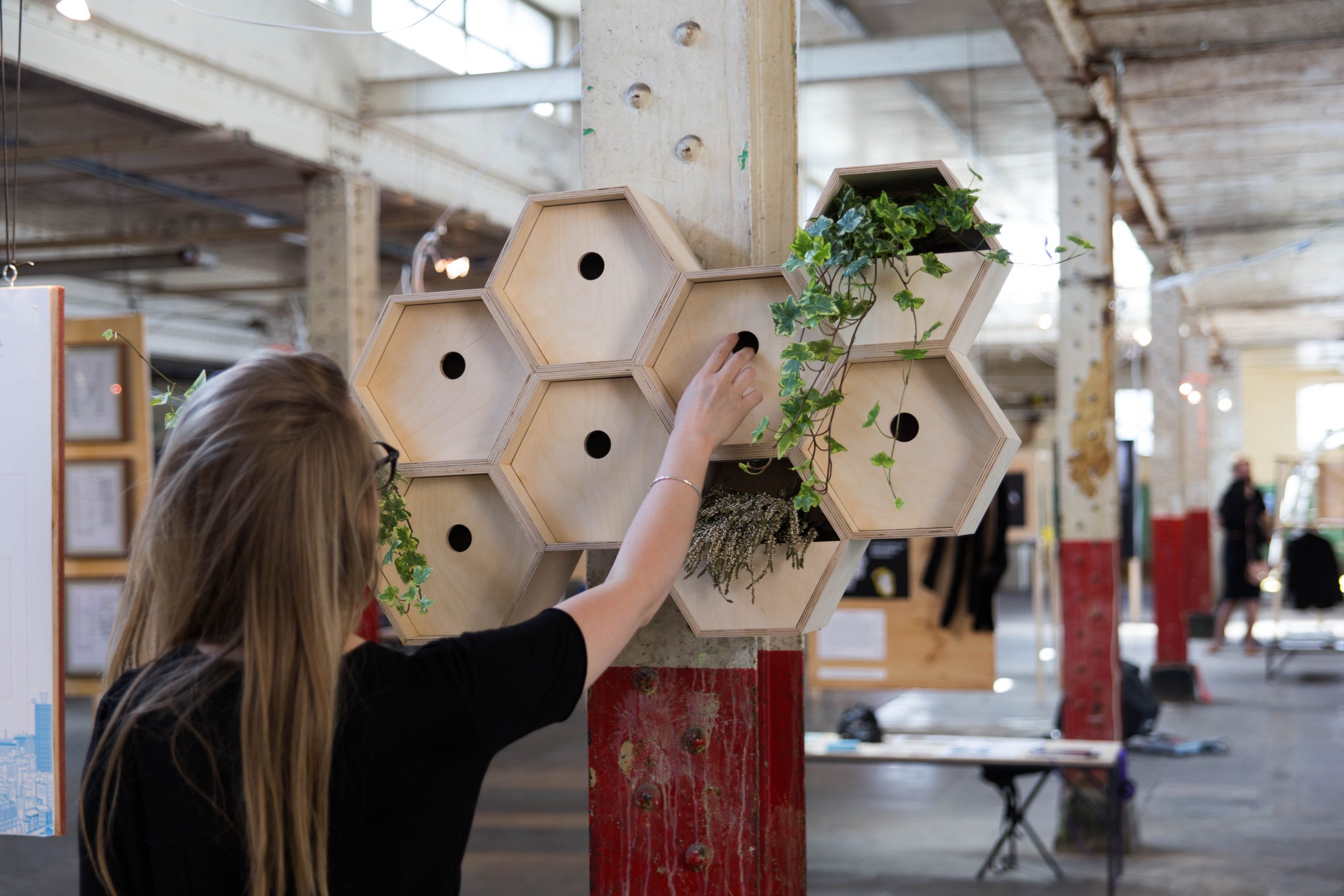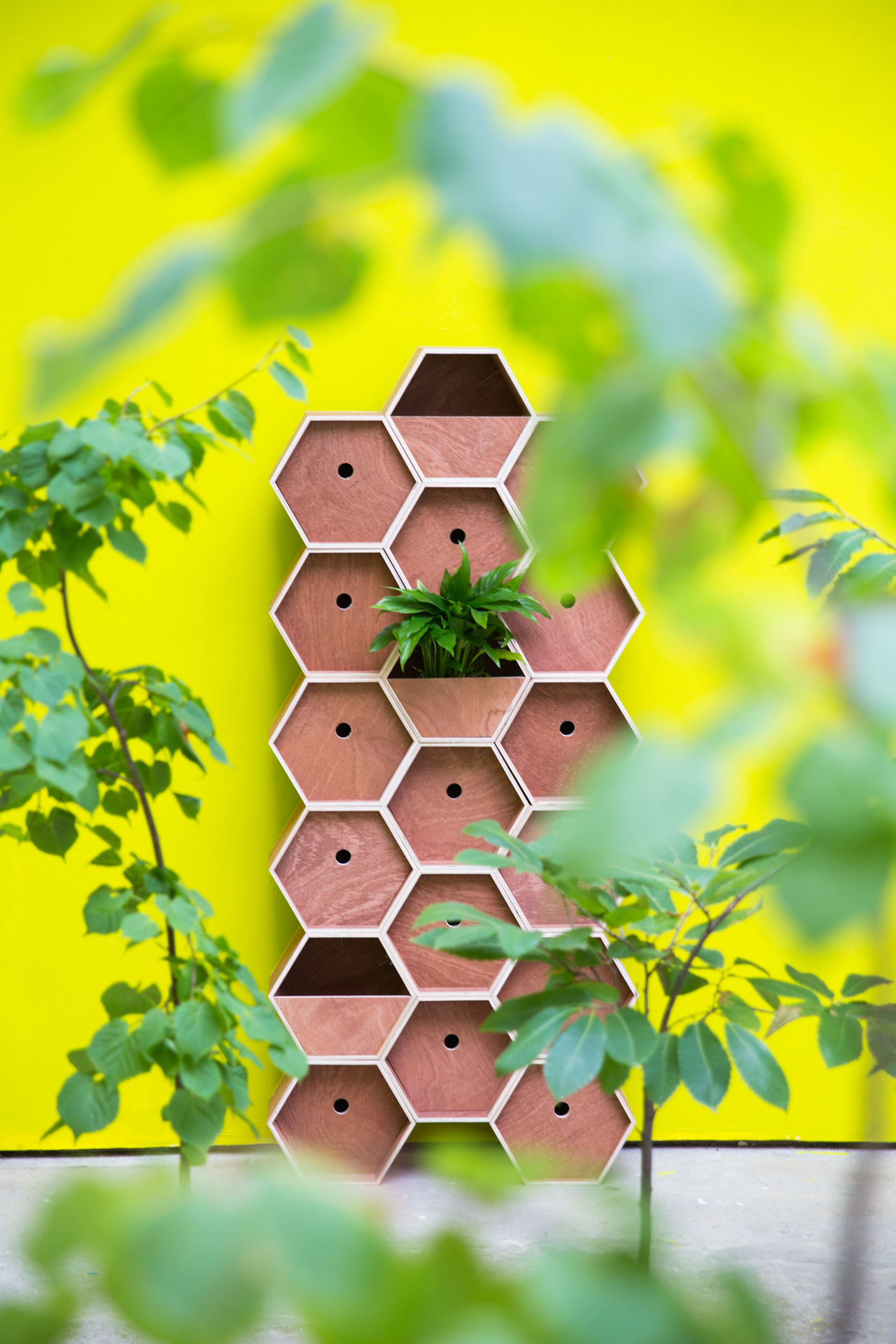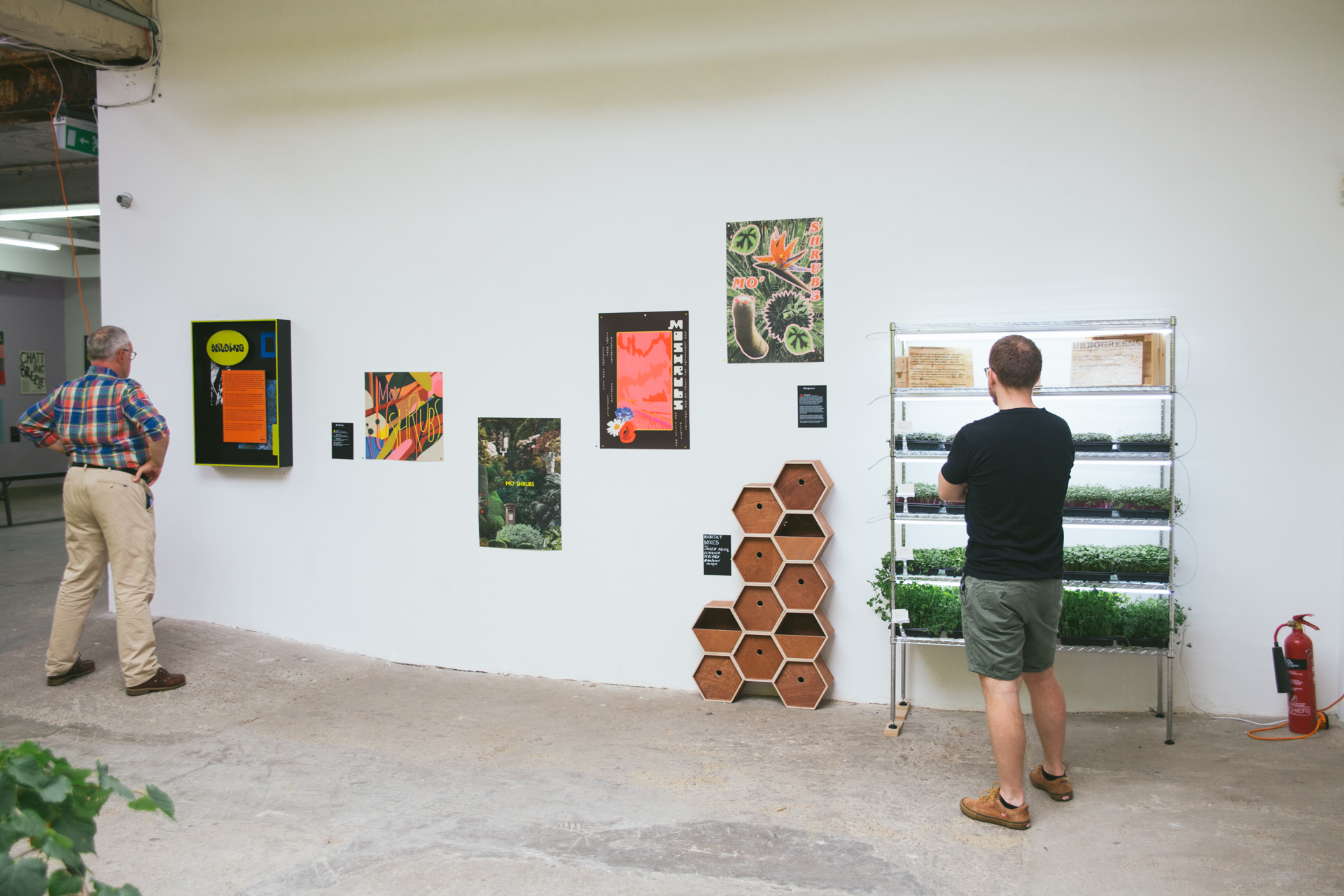Modular Habitats

Useful information
- Team members
- Lauren Davies
- Country
- United Kingdom
- Keywords
- Modular Habitat Open Source Fabrication Sustainable Wood Local Ecology
Short Description
Modular Habitats provides a visual, sculptural opportunity to integrate wildlife into urban spaces.
Detailed Description
Disused vertical space, such as building facades within our cities are a missed opportunity to promote ecological and biological diversity. In response, Modular Habitats is a concept for new additions to our city scape that promote cohabitation with local wildlife. In particular, those that suffer from habitat loss due to rapid urbanisation.
These physical objects seek to raise awareness and visibility for marginalised species by creating a visual experience for the viewer, thus unearthing some of the hidden natural processes functioning throughout the urban biome. Working with local ecological experts such as chiropterologists & ornithologists, to understand which species are in need, means each piece can be tailored to a specific location, species & context. Produced using locally sourced wood suitable for outdoor use, the product is easy to produce & follows circular, sustainable production methods. It is suitable for CNC / digital fabrication & traditional woodworking methods.
Project Details
- Does your design take social and cultural challenges and human wellbeing into consideration?
Increasingly, studies show that spending time in nature is good for our physical and mental health. With an increase in populations living and working in cities, we find ourselves more & more disconnected with the natural world. Not only is this damaging health-wise, it also removes us from thinking that we are a part of nature, which is a dangerous direction when planning for the future of an increasingly technology-focused society. What Modular Habitats suggests, is a way of life in which design can integrate nature into urban spaces, promoting a culture of coexistence, of one ecosystem. A symbiosis between nature and the built environment.
Resource: https://www.nature.com/articles/s41598-019-44097-3
Further to this, Modular Habitats can be viewed as one of many products and innovations within the growing field of 'Ecosystem Services', in which Natural Capital is recognised as a measure of health & growth by nations globally. Rather than using GDP as a singular measure for the socioeconomic "progress" of a country, what if we were to place value in things like biodiversity? Comparing and competing for the ultimate green title? Not only would an economy of care, based on natural systems and services, benefit biodiversity health, it would also in turn, boost GDP as a sector providing new jobs, products and services.
- Does your design support sustainable production, embodying circular or regenerative design practices?
Guided by methods of Circulytics from the Ellen Macarthur Foundation, Modular Habitats seeks to promote circularity & sustainable practices wherever possible.
Source Material: Modular Habitats promotes the use of sustainably & locally produced woodstock, that can be replenished by replanting. It also considers the depletion of natural stocks and the need to understand natures cycles when it comes to growing source materials. Where possible, the project promotes the recyling & upcycling of waste as a potential material resource, however, the wellbeing of species potentially using the product must be considered.
Life Cycle Assessment: As the project is in the initial stages it is unclear how it would fair outside over a sustained period of time (5-10+ years). However, if functioning as habitat for birds or bats it would need to be cleaned yearly in line with nesting cycles, therefore providing an opportunity for product assessment & necessary refurbishment or repairs.
Localism: Modular Habitats is designed to be produced using local maker spaces, digital fabrication &/or traditional woodworking methods. This, therefore, cuts out the need for delivering materials and cuts the need for specialists or specialist equipment to travel for installation.
Lastly, the product in and of itself promotes a culture of care and circularity, giving visibility to marginalised species. In making obvious the need to care for nature and natural systems, Modular Habitats promotes a way of living that considers preservation and conservation over consumption and expansion.
- Does your design use principles of distribution and open source?
Modular Habitats is designed to be customisable according to the context in which it is being produced for. This is a necessary and intrinsic principle embedded within the design process, as it is imperative that the individual species at risk are considered when implementing and producing a modular habitat. Furthermore, the modular concept means the design can be modified to be a small scale, domestic installation, or a large-scale, industrial piece. Suitable for production using CNC, laser cutting or tradition woodworking methods, the design is considered to be open source in that anybody with access to the designs could effectively take it to their local fabrication / maker space and collaborate on producing the product.
- Does your design promote awareness of responsible design and consumption?
Irresponsible design is a design process that doesn't consider the life cycle of a product, the environmental impact, the cultural and social implications of it's production and it's capacity to do social or cultural "good" (where good is a subjective concept in itself that must also be unpacked and considered).
Modular Habitats can be considered as a promotion of awareness of responsible design and consumption for the following reasons;
- Modular Habitats was not designed with profit as the end goal, but to champion ecological conservation as an intrinsic design principle.
- Modular Habitats seeks to apply a thoroughness and exclusivity to each piece, ensuring an uninterrupted discourse with relevant academia, converging disparate narratives.
- Modular Habitats seeks to take a circular approach to all production methods, use of materials and installation of outcomes.
- Modular Habitats seeks to exist as a critique of the attempts of science and philosophy to secure hierarchies and taxonomies in which to place 'the animal'. Moving away from the prescribed notion that Design exists merely as a service to provide products for consumption.
Images


